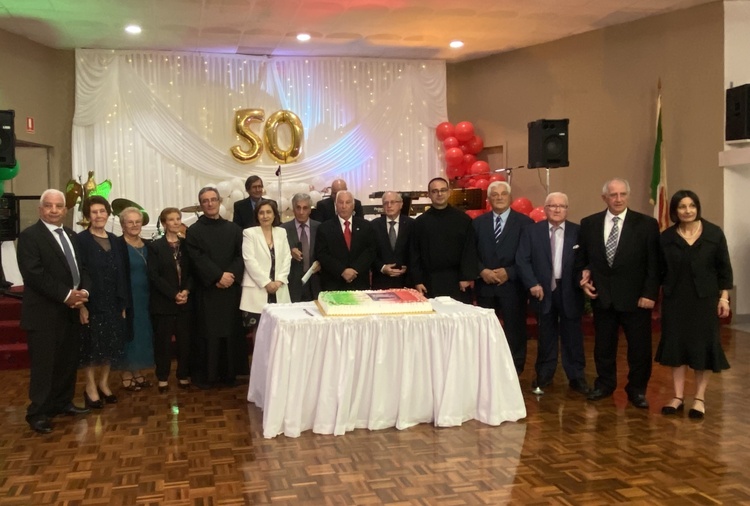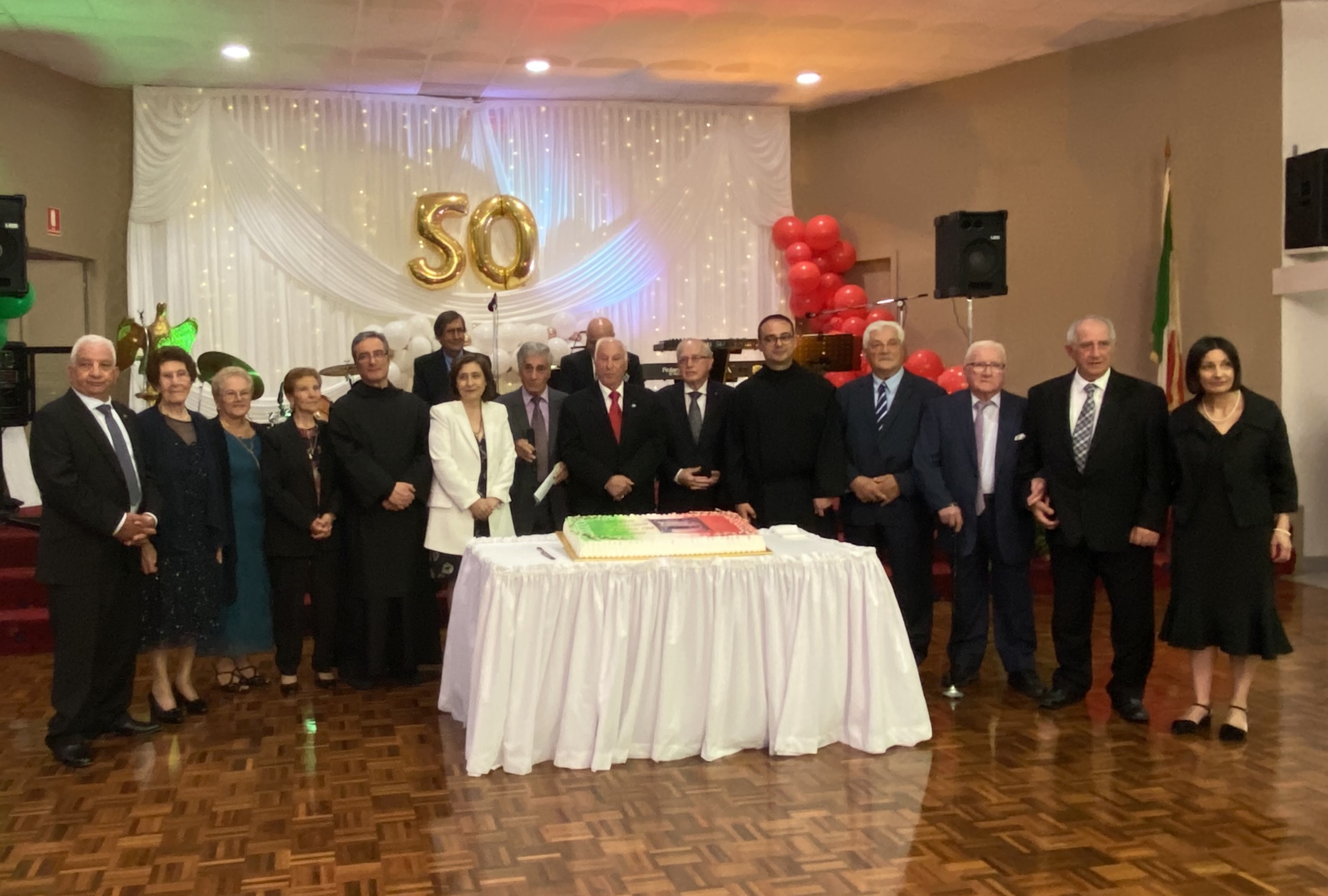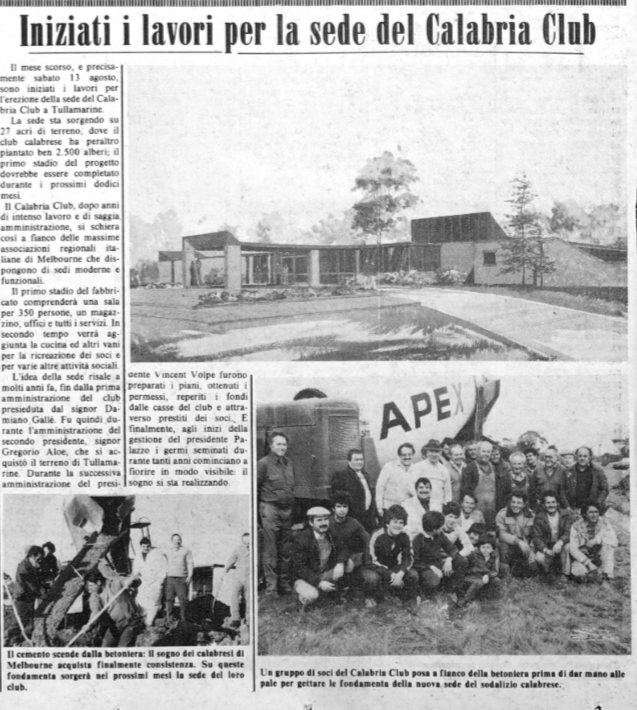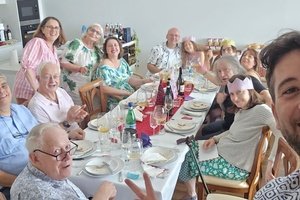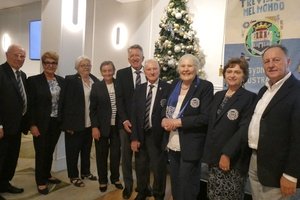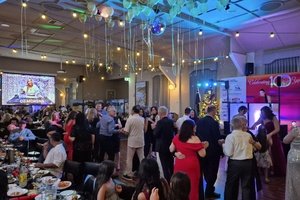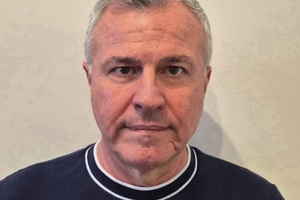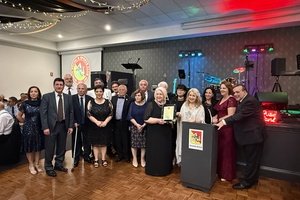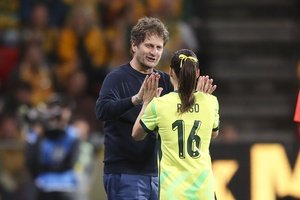On February 28, 1970, a group of students, businessmen and workers – primarily from Sambiase, Lamezia Terme, in the province of Catanzaro – united to form the club’s first official committee.
With no official home yet, the first meetings took place in parks and town halls, followed by the headquarters of the Coordinating Italian Committee (CIC) in Faraday Street.
The club’s then-president, Damiano Gallè offered up his Marconi Ballroom as a temporary headquarters.
In 1975, the club took an important step: it purchased 11 hectares of land at 1 Uniting Lane, Bulla, near the Tullamarine airport.
The club’s grand headquarters were built on the vast block of land and officially inaugurated in 1988 by the then-premier of Victoria, John Cain, and then-leader of the Opposition and current president of the Hawthorn Football Club, Jeff Kennett.
The club first built the reception room, complete with all the necessary equipment and able to accommodate 500 guests.
But the works didn’t stop there, and with the help of members and the general public, the club built a second hall which could hold 200 people.
Sporting facilities were also established, including an eight-lane bocce court capable of hosting international tournaments.
A page from the September 5, 1983 edition of Il Globo announcing the construction works of the new Calabria Club headquarters
Vice president of the Calabria Club and advisor of the Calabria Region, Vincenzo Daniele, said the dedication of the club’s members over the years has been invaluable.
“It would’ve been impossible to keep the club going without its members and the present committee thanks all those involved throughout the years,” he added.
Sam Sposato was the president when the club’s headquarters were inaugurated and upholds the same role today, having just begun his third term.
“There were so many people that we had to spread the celebrations across two days,” Sposato recounted.
“We organised two inaugurations, one on Saturday and the other on Sunday!”
Other presidents who’ve helmed the club throughout the years include Damiano Gallè, Frank Murione, Gregorio Aloe, Vincenzo Volpe, Antonio Palazzo, Ugo Zaffina and Gino Bonacci.
While the club has had its fair share of ups and downs over the decades, it’s stronger than ever today.
“Everyone is envious of how we’ve managed to grow and how we’ll continue to do so in the future,” Daniele said, adding that the club has become an important reference point for the Calabrian community in Melbourne.
Daniele explained that the biggest event on the club’s social calendar is the Feast of Saint Francis of Paola, which is held on the first Sunday of March every year [March 1, 2020].
The regional advisor then spoke of an important project that took place in 2003 and was organised by the federal government: Harmony Day.
The initiative was entrusted to the Calabria Club due to its success in the past in bringing together different cultures and religions through social and sporting events.
“The federal government allocated $50,000 to the campaign which aimed to combat racism and prejudice,” Daniele said.
“We collaborated with the Alawi, Turkish Cypriot, Greek Cypriot, Syrian and Aboriginal communities.”
Meanwhile, Sposato recalled two other important occasions: when they brought Saint Francis of Paola’s cloak to Melbourne in 2013, followed by the saint’s finger in 2016.
“It took six months to organise the transport with the Department of Cultural Heritage in Naples,” he said.
“The main problem was customs: the relics were transported in a glass box to preserve them, but the box couldn’t be opened to carry out customs checks.
“Customs officials had to come to the club to complete the checks.
“I must emphasise that the Victorian and federal governments were extremely helpful at the time.”
Another major project unfolded in 2017: the ‘Dieta Mediterranea’, which showcased Calabrian products from Italy, sponsored by the Calabria Region.
Today, this event is incorporated in the Week of Calabrian Culture that aims to promote the region of Calabria, tourism, the Mediterranean diet and typical Calabrian products.
“The initiative aims to share Calabria’s potential with the Australian community and showcase its gastronomy and most beautiful locations,” Daniele explained.
Every year, the Calabria Region allocates funding for the organisation of the Week of Calabrian Culture and in 2019, the funding went to the Calabria Club in Bulla.
This year’s edition coincides with the club’s anniversary, running from Saturday, February 22, to Sunday, March 1.
Organised in collaboration with the Federation of Calabrian Clubs, the week opened with a gala event attended by many prominent members of the community and will conclude with the Feast of Saint Francis of Paola.

